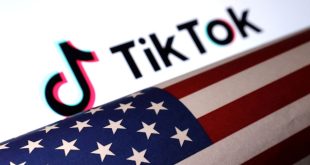Comedian and actor BRIGHT OKPOCHA, popularly known by his stage name Basketmouth, discusses his career and experiences in the entertainment industry in an interview on CreativiTea Live with Lynda Youtube Channel.
You said comedy started like a mistake and that you wanted to be a rapper. Take us through how it started.
At the beginning, all my friends were funny. I think it was in JSS3 (Junior Secondary School) during break time. People would stand in front of the classroom to entertain everyone, and every time someone else came up, I’d think to myself, “You know, you could kill this thing. Just give them a 15-minute story.” So one day, I went up, and I blew their minds. I just gave them a gist and freestyled. Every time there was a break, they’d call me to entertain them. Apparently, I was doing stand-up at that point, but I didn’t even know what it was. That went on for a while. There was a time when I was telling some jokes in front of our house at No 32 Cardoso Street, Kirikiri Town (Lagos), and my elder brother’s friend was listening to me. Afterward, he called me aside and asked, “Have you watched Eddie Murphy’s Delirious?” I said, “No.” He said, “You should watch it.” As soon as I played that tape, I was like, “Damn, this is what I want to do.” But that realization came later. All this time, music was in the back of my mind. At some point, I thought it was music, but I ended up discovering comedy. It’s a long story. My life could probably make 10 different movies. There was a time when we were called to perform as a rap group. While performing, the crowd started booing us, and I became upset. I told the group, “Guys, chill.” I grabbed the mic, turned to face the crowd, and for about 20 minutes, I handled the situation. At that time, there was no “Basketmouth” yet, but when I looked at the promoter, he just told me, “Keep going.” I thought, “Okay.” Afterward, I went to the back of the venue, and one guy walked up to me and said, “Bro, man, you got ‘Basketmouth.’” And that’s how the name came about. I had to make a decision.
So, that means the creativity was in you all along?
I didn’t know, but it was always there. When I see an already finished product, I would look at it and think, “I wish this person had done it like this and ended it that way or started it a different way.” I was always too critical, always tearing apart to rebuild other people’s work — and the same thing with my own. When I started creating things, I’d work on it, but then I’d think, “No, this isn’t good enough. I’m not impressed with myself yet,” and I’d destroy it and start all over again. I have a lot of projects that I’ve created that I still can’t sleep over because they’re still not there yet.
When we were growing up, a lot of the comedians were from Warri (Delta State) like Bovi, Ali Baba, but where are you from?
I am from Isuikwuato Local Government Area (Abia State).
How were you able to dominate? It seems like you added the Igbo touch to it.
I knew the Igbo blood was flowing quite strongly in me because of the way I infused the business aspect into what I do. Yes, comedy is entertainment, and they call it showbiz, but I think I’ve been blessed with foresight. I don’t know how God does it for me, but when I see something, I can sense the timeline of it. For some reason, I can tell when something is going to die soon, and I know I need to switch or start looking for alternatives — no matter how comfortable or lucrative it may seem. You know how people are: when something starts getting popular, everybody jumps on it. But when the space is flooded by all sorts of people, the quality starts to drop, and consumers get confused. At the end of the day, you get blended in with the rest of them. So, I’m always quick to step away from a space when I see it losing its value. When I started, I told myself, “You must be different. Don’t be like the rest. Make sure your materials are different. Don’t aim to be the best on stage; aim to be the most memorable.” Say things that will stick in people’s minds, so that they’ll be talking about you long after the show. Luckily, I went to school in Uniben.
What did you study?
I studied Sociology and Anthropology. I’ve been friends with comedians like I Go Die and I Go Save for about 26 or 27 years, so I think that affiliation helped shape me. Even before I got admission to Uniben, I was already visiting Benin frequently. I was a drummer in my church, and I used to travel to their branch there. I think they embraced me nicely, and that environment helped shape me well.
Alibaba was there, and you guys were all under him at one point, right?
I want to correct that. When Alibaba discovered my talent, he gave me his card and asked me to come to Lagos to see him. When I went, it was just me and him. He was working with Tee, but Tee had already established himself, so it was really just me and Ali. I followed him to gigs, learning the ropes and understanding the corporate side of the business. I didn’t know anything about that side, so I understudied him. I spent about three years in Benin, and when other comedians started coming into the scene, some people said, “The fact that Basketmouth is affiliated with Ali, that’s why he grew so fast.” I noticed that a lot of people started coming around, and you know me — I don’t like it. So, I stepped back and decided to do my own thing. Most of them didn’t understand why I was working with him. I was working with him because he had been in the game for a while. I needed someone who could show me how to navigate the business. All I had was talent; I wasn’t trying to break into his space. I just wanted to learn from him — how he maintained his clients and kept getting calls for gigs. There was never a time that we were all together. It was only after I left that many others joined him.
What did you learn from him that you think a lot of comedians out there could benefit from, especially when it comes to clinching and keeping brand deals?
What I learned from Ali wasn’t necessarily what I applied right away. Of course, I learned the importance of being punctual, being on time for meetings, and not just for events. It’s more about customer service — making your clients feel like friends. You have to make them comfortable and be nice to them. Eventually, they’ll feel like they’re not just clients but friends. I also learned about pricing from Ali. I remember telling him, “These guys have booked me for N40,000,” and he’d say, “Why are you taking that? You shouldn’t take it.” I’d reply, “I need the money.” Then he’d say, “Don’t worry, I’ll give you N20,000. Sit down.” Over time, I realized I didn’t need him to tell me not to take certain offers. I’d hear the offer, and I’d know, “Ali wouldn’t want me to take something like this,” so I’d pull back. For a long time, I was hungry because people didn’t understand. You know how it is: even now, when fuel prices go up, everyone gets angry at first, but eventually they calm down because they still need it. I was focused on building my brand to the point where they needed me. When I raised my prices, I stayed hungry for a long time. Eventually, they realized they needed me, and had to meet my price. It even happened with Opa Williams. The first time he booked me for a gig, the agreed amount was N20,000, but he ended up paying me N5,000. I was upset, but I ignored it and gave him a good show. I knew he’d come back. The next time, I charged him N50,000, but he didn’t pay. The third time, I charged him N100,000, and he still didn’t pay. The fourth time, it was N150,000. When he finally paid, it was N200,000. The more I refused his offers, the more I worked on my brand, ensuring he saw the value I was offering. I believe people should focus on the quality of their brand so that clients, no matter what, will come back — even if it takes 10 years. I’m a patient person, as your ‘vego’ guy must have told you. But one thing I taught myself was this: when working with a first-time client, yes, you want to bill them, but it’s important to add something extra. If they’re paying N1 million for a service, throw in something that adds about N250,000 or N500,000 in value that they wouldn’t normally expect. It’s about going the extra mile to make them feel they are getting more than what they paid for.
 National Telescope national telescope newspaper
National Telescope national telescope newspaper



